Back to Timelines

Alaric Enters Italy
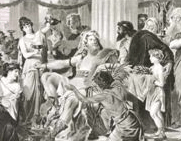
Visigoths Shift Their Capital To Toledo
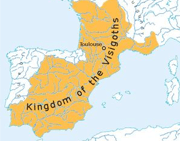
The Visigoths, based at Toulouse, shift their capital to Toledo in central Iberia. They practice Arianism, while their Hispano-Roman subjects follow Orthodox or Catholic Christianity. Small communities of Jews live in several cities of Iberia, a region they call “Sepharad.”
Visigoths Unify the Iberian Peninsula
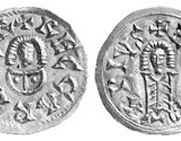
The Visigoths unify the Iberian peninsula from Cantabria in the north to the Strait of Gibraltar in the south, leaving a few small areas to the Basques and other groups. The Visigothic king, Reccared, converts to Catholicism, and the Third Council of Toledo declares it the official religion of the kingdom. The Jews — prosperous as merchants, traders, and money lenders — are increasingly subjected to harsh policies and periodic attacks.
Muhammad Begins Preaching
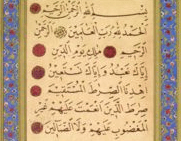
Muhammad begins preaching the faith of Islam in Arabia, attracting followers called Muslims. He proclaims the Oneness of God, conveys the message of the Qur’an, and stresses the faith’s connections to Judaism and Christianity.
Muhammad Establishes Political Authority In Medina

Muhammad establishes political authority in Medina following the hijrah (migration) from Mecca and rallies many Arab tribes to his cause. Over the next decade, Muhammad presides over the Meccans and establishes Islam throughout Arabia.
Muhammad Dies In Medina
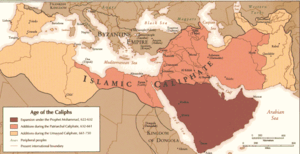
Muhammad dies in Medina, and a series of caliphs (successors) are chosen as leaders of the fledgling polity. Over the next decade, Muslim armies extend their rule in northern Arabia and then decisively defeat Byzantine troops in Palestine and Sasanid forces in Iraq, taking control of those territories.
Recceswinth Issues the Forum Judicum
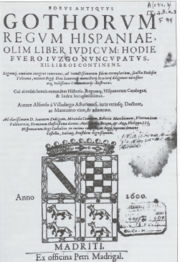
The Visigothic king, Recceswinth, issues the Forum Judicum, a comprehensive law code dealing with marriage, business transactions, crimes, and heresy. The code stipulates harsh punishments and severely restricts the activities of Iberian Jews.
Muawiya Becomes the Caliph

Muawiya, a Meccan elite and companion of Muhammad, becomes the caliph and founds the Umayyad dynasty in Damascus. During the next century, his descendants and relatives expand Muslim rule northwards into Anatolia and Central Asia, eastwards to the borders of India and westward across North Africa.
Tariq ibn Ziyad Crosses To Spain
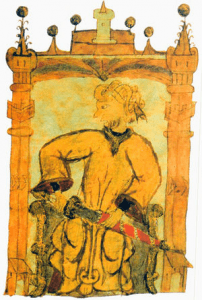
The Berber commander, Tariq ibn Ziyad, head of a small Umayyad force, crosses to Spain from North Africa with the support of Count Julian of Ceuta. At the Battle of Guadelete, ibn Ziyad’s troops defeat the large army of the Visigothic king, Roderic, bringing an end to Visigothic rule and paving the way for the Muslim conquest of Iberia.
Umayyad Governor Rules Most of Iberia

An Umayyad governor sent from Damascus rules most of Iberia, and Jewish community leaders help maintain order in key cities after the flight of the Visigothic elite. Treaty agreements safeguard the Hispani-Roman population’s property, religion, and customs.




